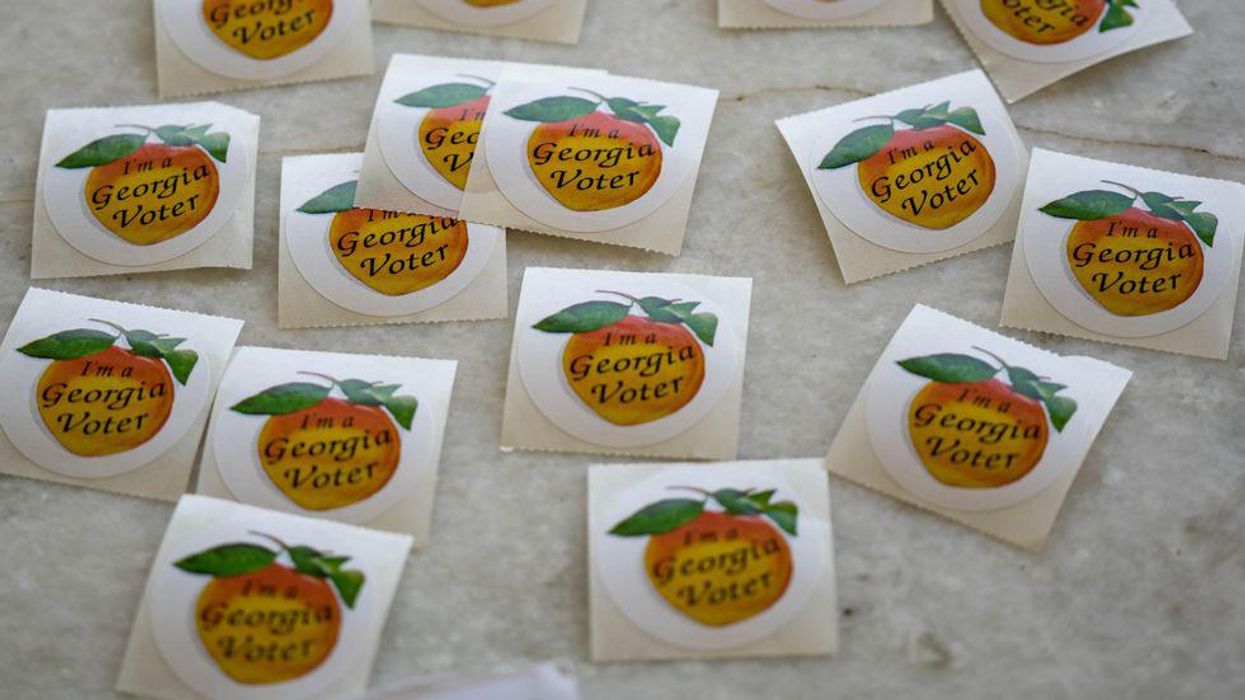Johnson is the executive director of the Election Reformers Network, a national nonpartisan organization advancing common-sense reforms to protect elections from polarization.
For a democracy to function, one simple, central fact must be clear to all: who won. There is no disagreement about the winner of the Super Bowl or the Olympic gold medal in the shot put, and the same should be true for election results. But in polarized America, we’ve lost that clarity and public consensus.
Different media environments present radically different pictures of the election landscape. Citizens increasingly trust only the information from their side of the political divide. Who won is starting to sound subjective — a very dangerous trend.
On Tuesday, the State Election Board in Georgia took a big step toward making it worse.
The board voted to grant the state’s county-level election boards new and unclear powers to conduct inquiries into elections before certifying the results. This decision gives a role in evaluating election results to boards composed mostly of political-party-affiliated members, whose work is not likely to be perceived as impartial. The decision also conflicts with longstanding case law that has interpreted county board certification as a ministerial, non-discretionary function. The new powers “would sow disorder in the state’s election administration process, which already has safeguards to ensure election results are accurate and reliable,” the Brennan Center for Justice and United to Protect warned in a letter to the board.
Local certification of results, in Georgia and most other states, used to be a sleepy bit of bureaucracy. A county commission or election board would receive precinct-by-precinct results from the county’s lead election official and certify that the numbers added up correctly. Statutes and case law in many states make clear that this process is not a time for investigation of results or independent judgment.
These county bodies in Georgia and other states do not need discretion at this phase because other election elements amply protect fair results. State laws provide for multiple verification checks of preliminary results, including recounts and audits. Party poll watchers are allowed to observe election processes to check for any irregularities. Parties and candidates can challenge election results in court.
Since 2020, certification has become a battleground in the polarization wars. In six states, board members have sowed doubt and disrupted elections by refusing to certify results, often based on clearly arbitrary and subjective reasoning. “I do not trust these [Dominion voting] machines and I want Otero County to have a fair election for everybody," said one New Mexico county commissioner who initially voted against certifying 2022 primary elections.
In New Mexico and other states, courts stepped in to ensure county boards or commissions complied with the law and certified the results. Those judicial actions kept certification problems from seriously disrupting election timeframes, but, because of the press attention, the standoffs contributed to distrust and uncertainty about results.
Some media coverage of the Georgia decision has mentioned a worst-case scenario of intentional certification delays designed to prevent Georgia’s electoral votes from reaching Washington in time to be counted, but there are strong arguments against the likelihood of this scenario. The county certification deadline in state law — one week after Election day — is quite early in the process, so any delay long enough to put electoral votes in jeopardy would clearly exceed the “reasonable” standard provided in the ruling, giving courts a clear path to intervene and force certification.
The principal argument in favor of Georgia’s new rule is that under the current “ministerial” approach, county board members must attest to results they haven’t personally confirmed. This concern can be addressed by clarifying a set of documents the boards should receive, a suggestion proposed by SEB Chair John Fervier.
It’s helpful to step back and take a comparative perspective on this debate. A recent study of 12 major democracies found that none has a separate certification step in their election process. In fact, none has the word “certification” (or its equivalent) in their election laws at all. What happens instead in those countries is straightforward: The people who run elections announce the results, courts hear any challenges and their decisions are final.
The best way for America to rebuild consensus about who won is not splintering decision-making among hundreds of ill-equipped partisan boards, but instead to follow the model described above: Prioritize the role of courts. As imperfect as they may be, no institution is better suited than courts to consider evidence, render judgment and anchor the rule of law in elections.
In 2020, dozens of courts across six battleground states decided 64 legal actions filed by the Trump campaign. All but one was dismissed, withdrawn or decided against the campaign. (See this report for an excellent summary of all cases.) Collectively, these decisions are the definitive verdict on who won the 2020 election, but they weren’t given the prominence they deserved. Too often commentary in mainstream media cited the opinions of experts on the trustworthiness of the elections, rather than decisions of judges whose rulings were, from the perspective of the rule of law, the last word on the matter.
The Electoral Count Reform Act, critically important legislation passed by a bipartisan majority in Congress, is based on the same core principle that courts have the key role in election disputes, and partisans — such as the vice president and members of Congress – –have minimal discretion. This is the direction we should be taking. Recent legislation passed in Michigan and Minnesota also reflects this approach, clarifying that the certification process is “purely ministerial.”
When the Georgia Legislature reconvenes, it should join this trend and override the SEB ruling.




















Marco Rubio is the only adult left in the room